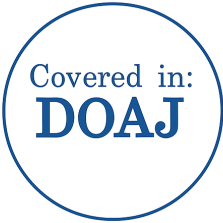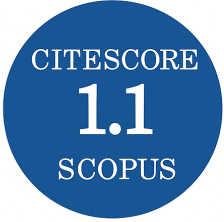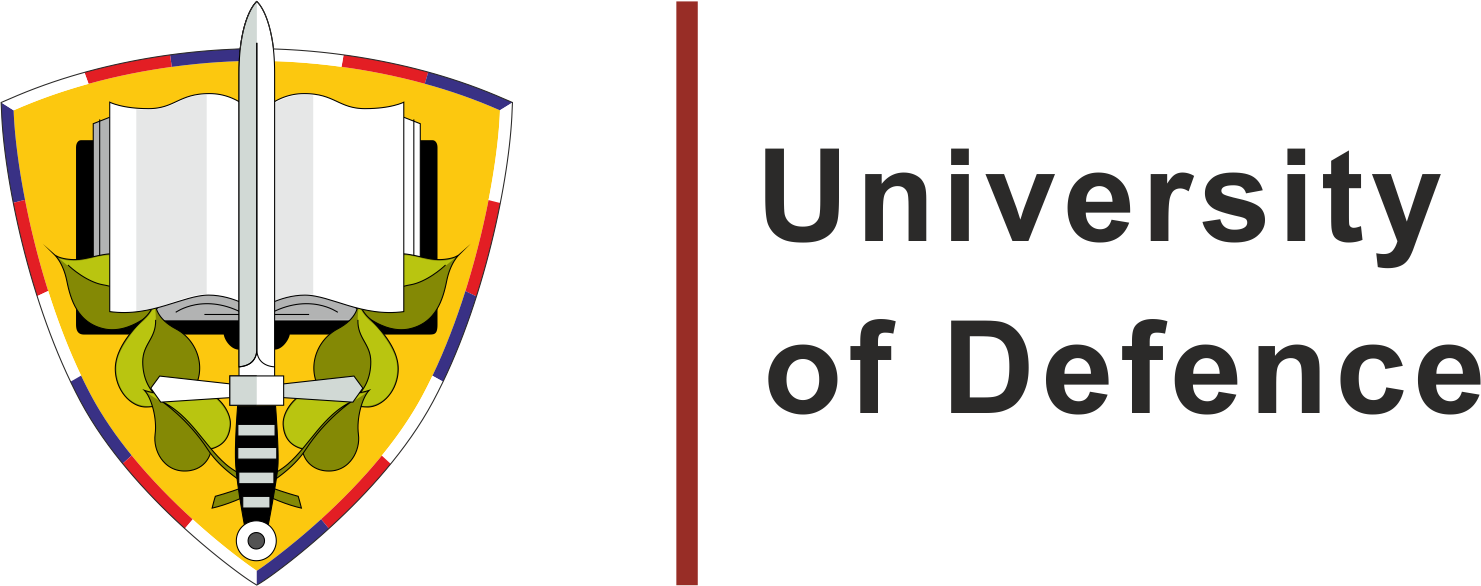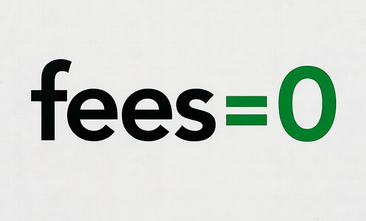Quality Improving of the Air Traffic Controller Selection Process at the University of Defence
DOI:
https://doi.org/10.3849/aimt.01914Keywords:
air traffic control, air traffic controller selection, selection procedure, performance testing, generation Z, admission processAbstract
This study analyses the admission procedure for air traffic controller specialization applicants at the University of Defence in the Czech Republic. SWOT analysis identified strengths in the historically proven selection and it has also identified weaknesses in the assessment of air traffic controller-specific psychomotor skills. Key opportunities include integrating simulation technologies and enhancing collaboration with secondary schools. Key threats stem from outdated processes misaligned with Generation Z preferences and their declining interest in military fields. Recommended strategies focus on modernising the admissions process through simulation-based exercises, improving the promotion of the specialization, and adapting to the preferences of the current and future generation. The study provides a basis for evidence-based improvements in military air traffic controller candidate selection, emphasising a balanced approach between traditional and innovative assessment methods.
References
LANGR, D., V. KALVODA and V. POKORNÝ. Testing Aptitudes as Part of the Selection Process of Air Traffic Controllers by the Czech Armed Forces. Advances in Military Technology, 2015, 10(2), pp. 57-67. ISSN 1802-2308.
BAUER, M. and J. KALVODA. Workload Features inside Air Traffic Control Electronic Transfer Environment. Advances in Military Technology, 2020, 15(1), pp. 191-199. DOI 10.3849/aimt.01356.
Decree (Ministry of Defence) No. 279/1999 on Military Aviation Personnel (in Czech) [online]. 1999 [viewed 2024-06-13]. Available from: https://www.zakonyprolidi.cz/cs/1999-279
Act No. 111/1998 Coll., on Higher Education Institutions and on Amendments and Supplements to some other Acts (in Czech) [online]. 1998 [viewed 2024-06-12]. Available from: https://www.zakonyprolidi.cz/cs/1998-111
ULVR, J., P. RAČKOVÁ, V. SMRŽ, T. PECHÁČEK and O. MACH. Life Expectancy of Generation Z versus Requirements for the Military Pilot and Air Traffic Controller Study Specializations at the University of Defence. In: 2023 21st International Conference on Emerging eLearning Technologies and Applications (ICETA). Stary Smokovec: IEEE, 2023, pp. 542-550. DOI 10.1109/ICETA61311.2023.10343629.
ULVR, J., O. MACH, P. RAČKOVÁ, K. RUSŇÁKOVÁ and V. SMRŽ. New Personality Evaluation of Pilot Candidates in Czech Air Force. In: 2023 New Trends in Aviation Development (NTAD). Stary Smokovec: IEEE, 2023, pp. 256-261. DOI 10.1109/NTAD61230.2023.10380134.
Regulation (EC) No 1108/2009 of the European Parliament and of the Council of 21 October 2009 amending Regulation (EC) No 216/2008 in the Field of Aerodromes, Air Traffic Management and Air Navigation Services and Repealing Directive 2006/23/EC [online]. 2009 [viewed 2024-06-13]. Available from: https://eur-lex.europa.eu/legal-content/EN/ALL/?uri=celex%3A32009R1108
KALVODA, V. The Proposal of the Methodology for the Preparation of the Students-Air Traffic Controllers at the University of Defence with the use of the Simulative Technologies and the Methods of the Psychophysiological Diagnostics [Master thesis]. Brno: University of Defence, 2015.
FAA. Air Traffic Controller Workforce Plan 2021-2030 [online]. Washington: U.S. Department of Transportation, 2020 [viewed 2024-06-11]. Available from: https://www.faa.gov/air_traffic/publications/controller_staffing/media/2021-AFN_010-CWP2021.pdf
ICAO. Doc 4444: Procedures For Air Navigation Services. Air Traffic Management [online]. International Civil Aviation Organization, 2016 [viewed 2024-06-16]. Available from: https://standart.aero/en/icao/book/doc-4444-procedures-for-air-navigation-services-air-traffic-management-en-cons
ESTIVAL, D., C. FARRIS and B. MOLESWORTH. Aviation English: A Lingua Franca for Pilots and Air Traffic Controllers. London: Routledge, 2016. ISBN 978-1-138-02238-6.
Commission Regulation (EU) 2015/340 of 20 February 2015 Laying Down Technical Requirements and Administrative Procedures Relating to Air Traffic Controllers' Licences [online]. 2015 [viewed 2024-06-18]. Available from: https://eur-lex.europa.eu/legal-content/EN/TXT/?uri=CELEX%3A32015R0340&qid=1714471997744
CAA. Air Traffic Controllers – Licensing [online]. 2016 [viewed 2024-06-13]. Available from: https://www.caa.co.uk/our-work/publications/documents/content/cap1251/
FAA. Order JO 3120.4S - Air Traffic Technical Training [online]. 2024 [viewed 2024-06-13]. Available from: https://www.faa.gov/documentLibrary/media/Order/FAA_Order_JO_3120.4S.pdf
LANGR, D. The Means and Methods for Supporting the Selection and Training Process of Military Air Traffic Controllers (in Czech) [Doctoral thesis]. Brno: University of Defence, 2015.
ŘÍČAN, P. Psychology of Personality: A Field in Motion (in Czech). 6th ed. Praha: Grada, 2010. ISBN 80-247-3133-9.
ZACHAROVÁ, E. Fundamentals of General Psychology (in Czech). Ostrava: University of Ostrava, 2012. ISBN 978-80-7464-221-0.
PAVEL, S.R. The Evolution of the ATC Selection and Training Process. Journal of Aviation/Aerospace Education & Research, 2012, 21(2), pp. 31-57. DOI 10.15394/jaaer.2012.1336.
ICAO. Annex 1.: Personnel Licensing [online]. 2022 [viewed 2024-06-13]. Available from: https://standart.aero/en/icao/book/annex-1-personnel-licensing-en-cons
ICAO. Doc 8984: Manual of Civil Aviation Medicine [online]. 1985 [viewed 2024-06-14]. Available from: https://standart.aero/en/icao/book/doc-8984-manual-of-civil-aviation-medicine-en-cons
Requirements for Admission to Study (in Czech) [online]. 2024 [viewed 2024-06-13]. Available from: https://unob.cz/univerzita/co-muzu-studovat/chci-studovat-vojenske-technologie/chci-studovat-vojenske-technologie-bakalarske-studium-vojenske/bakalarske-studium-vojensky-letovy-provoz-vojenske/
MALACHOVÁ, H. SWOT Analysis: Study Text (in Czech). Vyškov: Training Command – Military Academy, 2020.
EUROCONTROL. Guidelines for Selection Procedures and Tests for Ab Initio Trainee Controllers (Revised) [online]. 2nd ed. Brussels: EUROCONTROL, 2001 [viewed 2024-06-13]. Available from: https://skybrary.aero/sites/default/files/bookshelf/5610.pdf
PILMANNOVA, T., L. HANAKOVA, V. SOCHA, M. FREIGANG and S. SCHMIDT. Student Air Traffic Controllersʼ Performance under Conditions of Increased Workload. Human Factors in Transportation, 95, 2023, pp. 539-548. DOI 10.54941/ahfe1003839.
HSU B. W., M.J. WANG, C.Y. CHEN and F. CHEN, Effective Indices for Monitoring Mental Workload While Performing Multiple Tasks. Perceptual and Motor Skills, 2015, 121(1), pp. 94-117. DOI 10.2466/22.PMS.121c12x5.
SCARBOROUGH, A., L. BAILEY and J. POUNDS. Examining ATC Operational Errors Using the Human Factors Analysis and Classification System: Final Report [online]. Washington: Federal Aviation Administration, 2005 [viewed 2024-06-15]. Available from: https://libraryonline.erau.edu/online-full-text/faa-aviation-medicine-reports/AM05-25.pdf
Downloads
Published
License
Copyright (c) 2024 Advances in Military Technology

This work is licensed under a Creative Commons Attribution-NonCommercial 4.0 International License.
Authors who publish with this journal agree to the following terms:
1. Authors retain copyright and grant the journal right of first publication with the work simultaneously licensed under a Creative Commons Attribution License that allows others to share the work with an acknowledgement of the work's authorship and initial publication in this journal.
2. Authors are able to enter into separate, additional contractual arrangements for the non-exclusive distribution of the journal's published version of the work (e.g., post it to an institutional repository or publish it in a book), with an acknowledgement of its initial publication in this journal.
3. Authors are permitted and encouraged to post their work online (e.g., in institutional repositories or on their website) prior to and during the submission process, as it can lead to productive exchanges, as well as earlier and greater citation of published work.
Users can use, reuse and build upon the material published in the journal for any purpose, even commercially.






